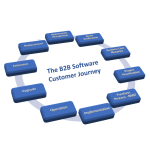5 tech stories you need to know about
We think there are five big tech-featuring stories that deserve your attention.
These stories are big and will mean a lot to our readers, as well as affecting every-day internet users.
1. Apple After Jobs. Apple is seeing it’s market cap at close to $1 trillion. This is on the back of products designed and launched under Steve Jobs. Steve Jobs is no longer with us. Tim Cook is CEO, but he’s an operational leader. Who’s the curator?
2. Windows 8 disaster. Is Windows 8 Microsoft’s next Vista? It’s been poorly reviewed. Says a BII analyst Matt Rosoff: “This won’t kill Microsoft’s business — Office, Exchange, big license agreements, Windows Server 2012 (which apparently is as surprisingly good as Windows 8 is surprisingly bad) and other enterprise business will keep it going for a long time. And Microsoft still makes money on every Windows PC sold, regardless of whether it’s Windows 7 or Windows 8. But get ready for ‘another Vista.”
3. Google. Originally, Google’s mission was to “organize the world’s information.” One of its ten core principles was: “do one thing really, really well.” It’s a search company. That’s what it does. Well. Then, at the start of 2011, Eric Schmidt stepped down from the CEO job and co-founder Larry Page took over. That’s kind of like your mum letting you have the keys to her 4×4. Larry wants Google to drive technology forward. That means Google is investing in self-driving cars, computer-powered eyeglasses, the entertainment industry, and the design and manufacture of smartphones from Motorola. Bad for stakeholders, good for a fly-on-the-wall moment?
4. Facebook’s IPO fallout. In late May, Facebook’s IPO was at $38 per share. At the time of writing, it’s about $25. Why? Facebook may have 900 million users, but its ad revenues aren’t growing the way investors would like and there’s no Plan B. Because Facebook raised $6 billion from its own coffers, the company itself will be fine in the short term. So will investors and insiders, who netted $10 billion in the deal. But long term, the company’s reputation has been damaged. In industry terms this means that social media companies loaded with users are plainly not as attractive to investors as they were before the IPO. And for early stage start-ups, raising capital could be a lot harder. For later stage start-ups, acquisitions may take precedent over IPOs.
5. Mobile-take-over. Smartphone subscribers number in the region of 953 million. 6 billion mobile users are old skool. That’s all set to change and soon. Maybe not this year, or next, but sometime more people will access services through their mobile devices than through the Internet. It’s already happening in India. Mary Meeker, analyst at Keliner Perkins, says it’ll happen in the US by the end of this decade. And what about Europe? Big tech businesses are already feeling the effects. Yahoo depends on Web-based email usage to funnel traffic to the rest of its site. Facebook bought Instagram for a $1 billion so that it would monopolise mobile-based photo-sharing. Google is a Web search engine. How valuable will that be when people only use mobile apps to find and buy things? Not very. The Internet as we know it is going away, and it’s going to disrupt billions if not trillions of dollars in market capital.
Source: Business Insider, Mary Meeker











